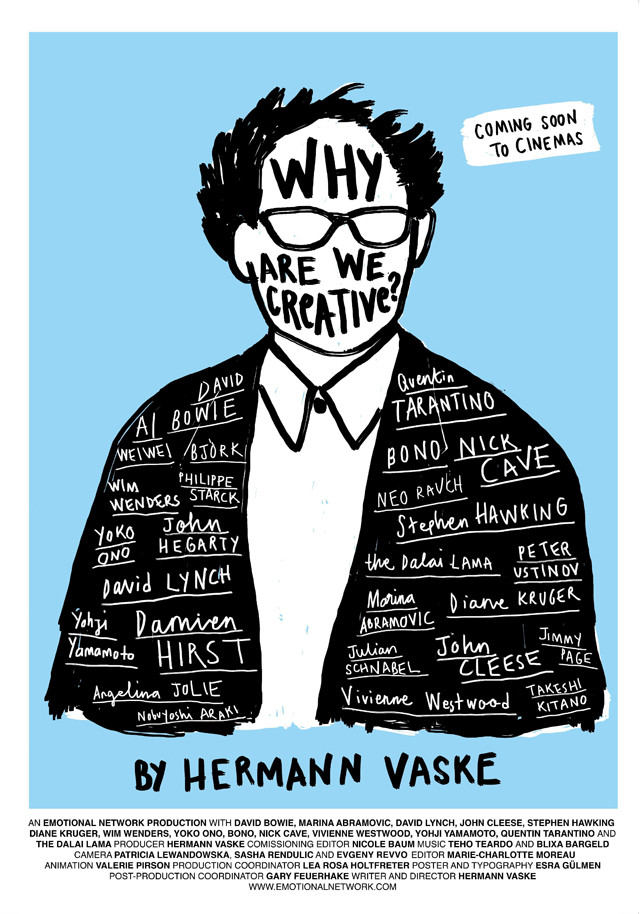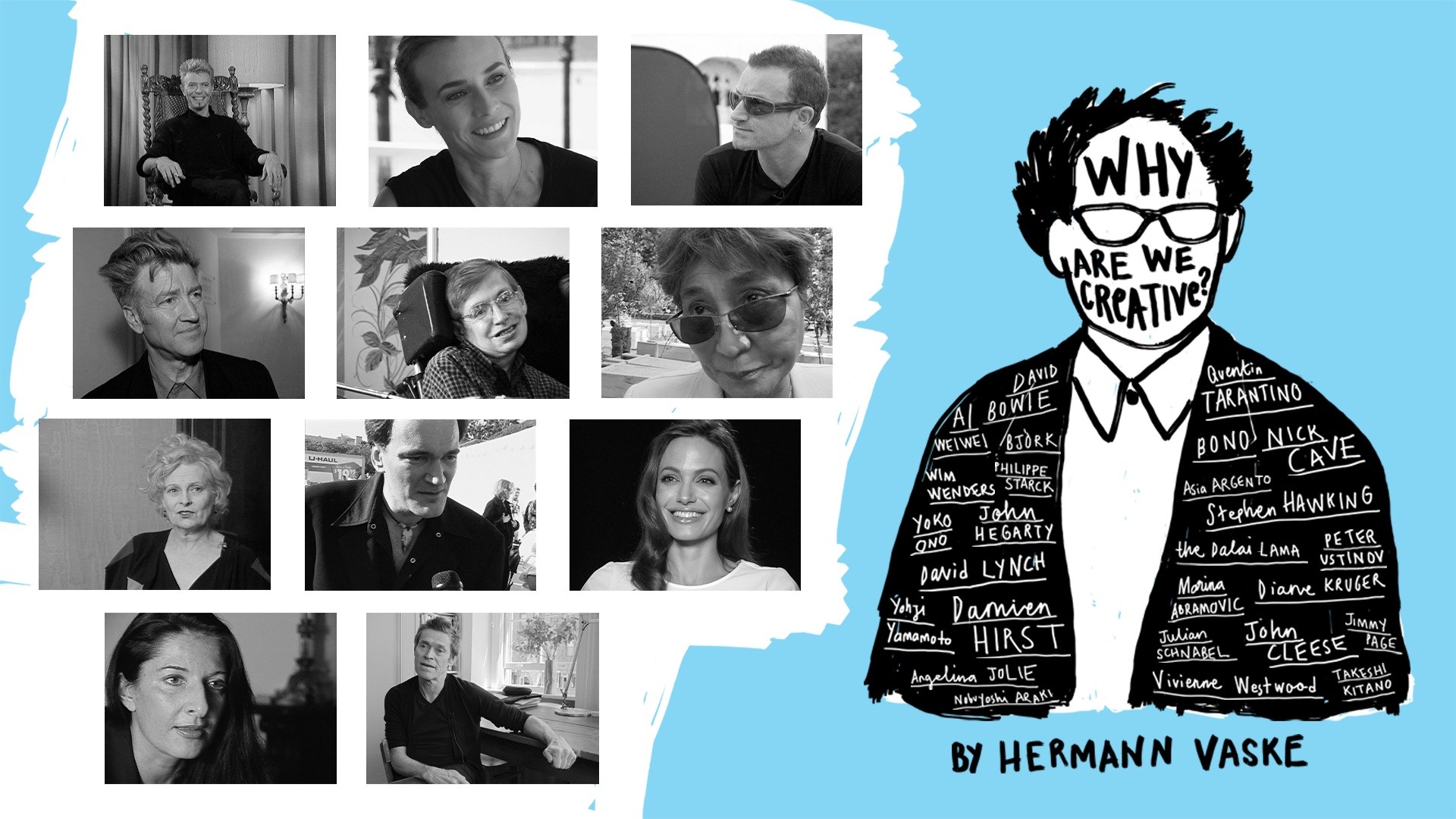Why Are We Creative: The Centipede's Dilemma
Year: 2018
Country: Germany
Director: Hermann Vaske
Cast: David Bowie, Jim Jarmusch, Stephen Hawking, Umberto Eco, David Lynch, Damien Hirst, Björk, Dalai Lama, Hermann Vaske, Willem Dafoe, Quentin Tarantino, Mariya Alyokhina, Nick Cave, Wim Wenders, Angelina Jolie, Werner Herzog, Vivienne Westwood, Marina Abramovic, etc.
Genre: documentary
Runtime: 84 min.
Age: 16+
Country: Germany
Director: Hermann Vaske
Cast: David Bowie, Jim Jarmusch, Stephen Hawking, Umberto Eco, David Lynch, Damien Hirst, Björk, Dalai Lama, Hermann Vaske, Willem Dafoe, Quentin Tarantino, Mariya Alyokhina, Nick Cave, Wim Wenders, Angelina Jolie, Werner Herzog, Vivienne Westwood, Marina Abramovic, etc.
Genre: documentary
Runtime: 84 min.
Age: 16+
A 30 years odyssey: the world's most intriguing artists and thinkers from the fields of visual art, music, filmmaking, acting, literature, philosophy, politics, business and science, are asked the same question: "Why are you creative?"
The question that Hermann Vaske has asked for over two decades is a large one. Why Are We Creative? There’s no blanket answer — no right or wrong notion of the philosophical ramifications trying to put your own personal interpretation into words conjures. So it’s interesting that he would end his film with a statement explaining how the thousand-plus subjects he asked changed the way he looks at the world. It’s interesting because we don’t know if that is true. After traveling the world to confront geniuses in their respective fields and creating an art exhibit with pages upon pages of written and drawn summaries of definitions spoken, Vaske hasn’t created any concrete evidence towards the worthiness of the endeavor to himself besides that single line of dialogue.
One therefore has to look past what it is he believes the film has always been. We have to forget Vaske completely because his brief interludes sprinkled throughout are merely used as segues or loose chapter headings for the audience’s journey. He’s a curator rather than the subject despite how things initially seem. He might be learning and changing as the years go on, but he has documented the text that inspired such unseen metamorphosis instead of the process itself. I don’t say this as a way to declare the final project a failure, only to explain the difference between intent and reality. Vaske intended to discover a universal answer to his query through volume and comparison only to find contrast, mystery, and fluidity in its place.
What in effect happens is that the film asks its audience the same question before presenting a litmus test of disparate thoughts courtesy of luminaries, celebrities, and people otherwise completely different than us. There are no random strangers on the street being accosted or respectfully polled. It’s Marina Abramovic, Nelson Mandela, David Bowie, Angelina Jolie, Vivienne Westwood, and Frank Gehry. It’s people who have had the time and mindset to approach a question of this weight and breadth, those with the ego to prepare snippets of ideology they have cultivated as a means to give their artistic essence form beyond the unpredictability of external tastes and era-specific ideals of beauty. Everything said is thus tainted by the rarified air of artificial pithiness that ultimately might lack true spontaneity.
One therefore has to look past what it is he believes the film has always been. We have to forget Vaske completely because his brief interludes sprinkled throughout are merely used as segues or loose chapter headings for the audience’s journey. He’s a curator rather than the subject despite how things initially seem. He might be learning and changing as the years go on, but he has documented the text that inspired such unseen metamorphosis instead of the process itself. I don’t say this as a way to declare the final project a failure, only to explain the difference between intent and reality. Vaske intended to discover a universal answer to his query through volume and comparison only to find contrast, mystery, and fluidity in its place.
What in effect happens is that the film asks its audience the same question before presenting a litmus test of disparate thoughts courtesy of luminaries, celebrities, and people otherwise completely different than us. There are no random strangers on the street being accosted or respectfully polled. It’s Marina Abramovic, Nelson Mandela, David Bowie, Angelina Jolie, Vivienne Westwood, and Frank Gehry. It’s people who have had the time and mindset to approach a question of this weight and breadth, those with the ego to prepare snippets of ideology they have cultivated as a means to give their artistic essence form beyond the unpredictability of external tastes and era-specific ideals of beauty. Everything said is thus tainted by the rarified air of artificial pithiness that ultimately might lack true spontaneity.

